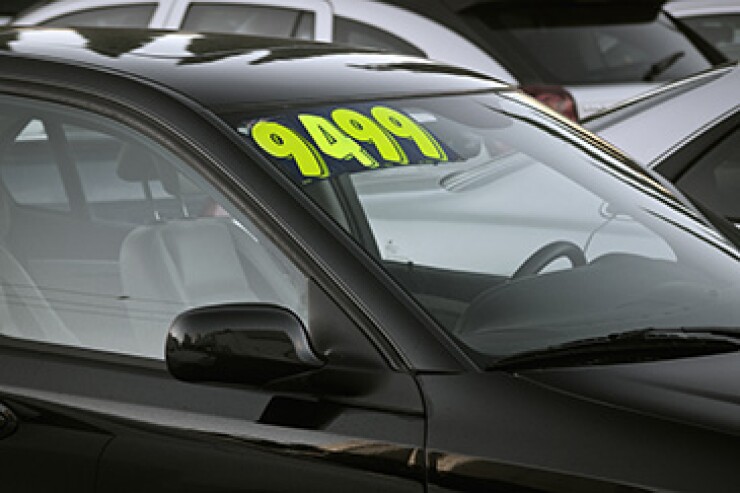Collateral loss and recovery rates for subprime auto loan securitizations improved to their healthiest levels in nearly three years in March, aided by the seasonal impact on federal tax refunds that gave car owners the chance to catch up on delinquent loans or apply to another vehicle purchase.
In its monthly U.S. auto loan ABS tracker, S&P Global Ratings reports that cumulative loss levels on collateralized portfolios of subprime auto loans fell to 7.11% in March, compared to 8.67% in February. That figure was also down from 7.61% in March 2018.
Declining loss levels are typical in March for ABS collateral performance, with tax refunds allowing consumers to bring accounts current. But the loss level is the lowest for a March rate since 7.01% in 2016.

Excluding the high-loss securitizations of deep subprime loans for the riskiest tier of car owners, the subprime index losses were only 5.78%, a 66 basis-point improvement month-over-month and 59 basis points from March 2018, according to S&P.
Sixty-day delinquency rates for subprime loans fell month-over-month to 4.28%. Meanwhile, ABS issuers reported higher recovery rates from proceeds recovered in the disposition of vehicles through trade-in values or from repossessions.
Higher used-car prices allowed subprime issuers to gain higher recovery rates, according to S&P. Those values were aided by the delivery of tax refunds, as well, since subprime buyers used proceeds from Uncle Sam as down payments on used-vehicle purchases, “thereby increasing used vehicle values, which helped recovery and loss rates.”
S&P cited J.P. Power statistics showing prices in the wholesale market for used vehicles of up to eight years of age increasing by an average of 2.7%. The biggest increases were in compact, small and midsize passenger vehicles.
For the prime sector, rising new-car prices have made affordable monthly payments more challenging, S&P noted. The weighted average APR for prime securitized pools in the first quarter was 4.29%, the highest level since 2011.
“Some lenders appear to be addressing the affordability issue by lengthening loan terms,” the report stated. “The average term lengthened to a record 66.0 months. While that's only slightly higher than 65.8 months in 2018, it's up considerably from 62.6 months seven years earlier.”





